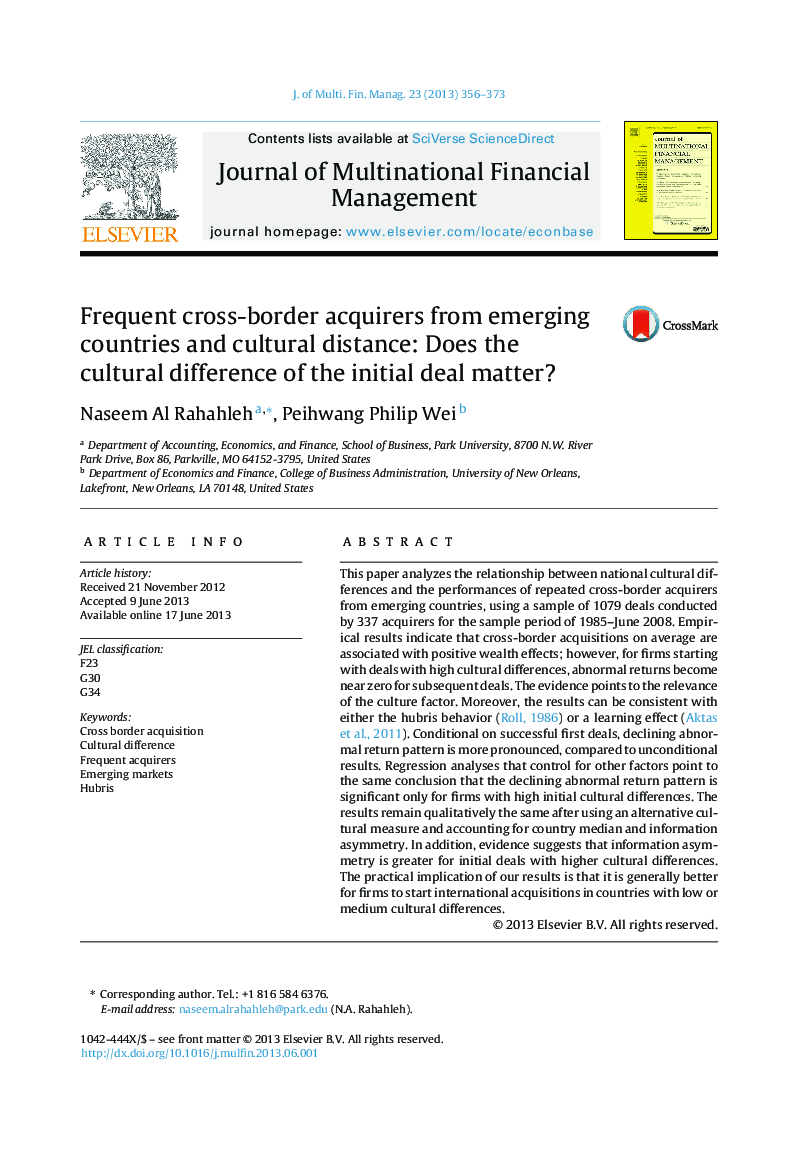| Article ID | Journal | Published Year | Pages | File Type |
|---|---|---|---|---|
| 967467 | Journal of Multinational Financial Management | 2013 | 18 Pages |
Abstract
This paper analyzes the relationship between national cultural differences and the performances of repeated cross-border acquirers from emerging countries, using a sample of 1079 deals conducted by 337 acquirers for the sample period of 1985-June 2008. Empirical results indicate that cross-border acquisitions on average are associated with positive wealth effects; however, for firms starting with deals with high cultural differences, abnormal returns become near zero for subsequent deals. The evidence points to the relevance of the culture factor. Moreover, the results can be consistent with either the hubris behavior (Roll, 1986) or a learning effect (Aktas et al., 2011). Conditional on successful first deals, declining abnormal return pattern is more pronounced, compared to unconditional results. Regression analyses that control for other factors point to the same conclusion that the declining abnormal return pattern is significant only for firms with high initial cultural differences. The results remain qualitatively the same after using an alternative cultural measure and accounting for country median and information asymmetry. In addition, evidence suggests that information asymmetry is greater for initial deals with higher cultural differences. The practical implication of our results is that it is generally better for firms to start international acquisitions in countries with low or medium cultural differences.
Related Topics
Social Sciences and Humanities
Economics, Econometrics and Finance
Economics and Econometrics
Authors
Naseem Al Rahahleh, Peihwang Philip Wei,
